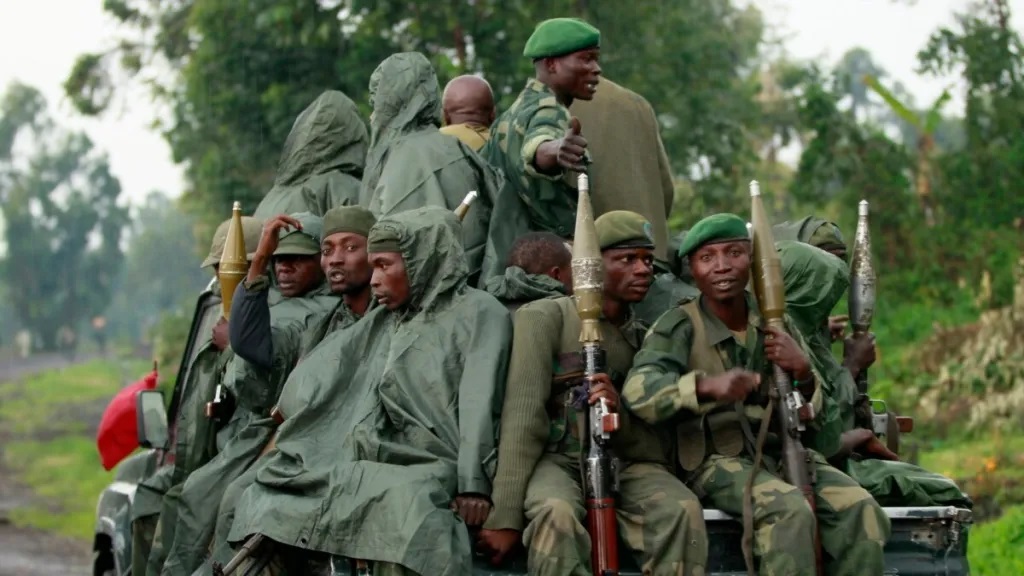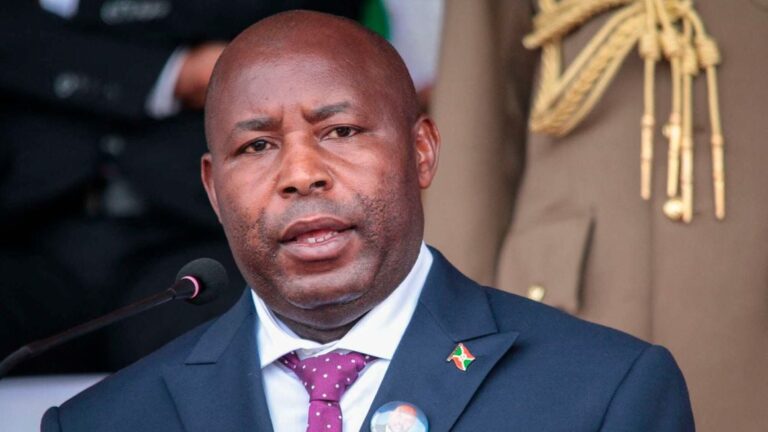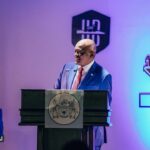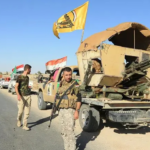Border tensions disrupting EAC integration. However, we do not see significant risks of military conflict between two countries yet.
Burundi’s closure of its border with Rwanda follows Burundi’s President Evariste Ndayishimiye’s accusation, that Rwanda was behind a recent attack in southern Burundi in which civilians were reportedly killed by ‘Red Taraba’ militants.According to him, Members of the RED-Tabara are hosted, fed and taken care of by Rwanda. The Burundi’s government had started deporting Rwandan nationals. This unfortunate decision will restrict the free movement of people and goods between the two countries and violates the principles of regional cooperation and integration of the East African Community.
Tensions between Rwanda and Burundi have risen in recent months over Burundi’s support for DRC’s armed forces in the war against Kigali-backed M23 rebels.
A Burundian armed rebel group known as RED-Tabara and based in South Kivu, eastern Congo, took responsibility for the attack in a post on X platform. The group, which denied having targeted civilians, claimed to have killed nine soldiers and a police officer. Burundian authorities consider RED-Tabara(Resistance for the Rule of Law in Burundi) a terrorist movement. The group first appeared in 2011 and has been accused of a string of attacks in Burundi since 2015. President Evariste Ndayishimiye claimed the RED-Tabara “are fed, sheltered, hosted and maintained in terms of logistics and financial means by … Rwanda.” Ndayishimiye said Burundi has been unsuccessfully negotiating with Rwanda for two years, seeking the extradition of the rebels.
The RED-Tabara group emerged in 2015 in response to the crisis that shook Burundi followed the disputed reelection of then-President Pierre Nkurunziza. Opponents of Burundian President Pierre Nkurunziza said his bid for reelection in April violated the constitution and the Arusha Agreement that led to the end of Burundi’s civil war in 2003, when the cease-fire was signed. Burundian authorities accused Rwanda of supporting the protesters and welcoming the perpetrators of a failed coup. Rwandan President also criticized Nkurunziza’s decision to seek a third term, and accused him of harboring a Rwandan rebel group(FDLR). Kagame (Rwanda’s President ) is a Tutsi nationalist, and Nkurunziza is Hutu but he tried to take the development in Burundi in a different direction, trying to move beyond sort of the ethnic dimensions in his first years of presidency.
The group and is believed to be composed of former soldiers, police and demobilised ex-rebels. Its “chief-of-staff”, Melchiade Biremba, says its goal is “to hunt Nkurunziza and his clique”.
With his departure, a transitional government will be formed, leading to free and credible elections. RED-Tabara shares the “same goals” as the CNARED opposition alliance – but says, “the ways and means we take are different”. Since then, the group has settled in the South Kivu region of the Democratic Republic of Congo, at the border of Burundi. For several years, the RED-Tabara carried out attacks against Burundian forces, but their activity had faded in recent years, leaving them almost forgotten.
The RED-Tabara are a Burundian armed opposition group whose main objective is to overthrow the CNDD-FDD regime in Burundi. They also aspire to allow the return of exiles following the 2015 crisis. However, their actions and demands have been largely ignored in recent years, until this recent attack which recalled their presence and their determination. In the wake of the failed 2015 coup, President Nkurunziza purged the army. This policy disproportionately targeted those who had served on the government side in the Burundian civil war (1993-2006). In that conflict, a primarily Tutsi government fought against predominantly Hutu insurgent groups, one of which became Burundi’s current ruling party, the CNDD–FDD. Consequently, most of those expelled, and who joined Forebu’s (the Republican Forces of Burundi) ranks, were ethnic Tutsi, though the group remains ethnically mixed. RED-Tabara has been referred to as the military wing of the Movement for Solidarity and Democracy led by Alex Sinduhije – an allegation denied by Biremba.
But RED-Tabara’s political leader is still believed to be Alexis Sinduhije, though he denies this. Sinduhije belongs to the opposition Movement for Solidarity and Democracy (MSD), a group he claims has been “demonised” for being “radicals”. Many in Burundi see the MSD as being dominated by Tutsis. This may be additional context for FPB spokesman Manirakiza stressing Forebu’s “political neutrality”.
The group is especially active in Bujumbura. It claims to only target the security forces, but civilians have also been victims of grenade attacks. Biremba says RED-Tabara is united with other anti-Nkurunziza insurgent groups, but “each has its own military strategy”.
Rwanda has denied any involvement in the attack, or association with the militants who are based in the volatile eastern DR Congo. Signs of a thaw in frosty relations between Burundi and Rwanda came in October 2022 with the reopening of the border between the two nations, following a seven year colsure.
Rwanda has also been accused by DR Congo’s President Felix Tshisekedi of fuelling militia attacks against his government – an allegation that Rwanda’s President Paul Kagame has denied.
In August last year, Burundi deployed soldiers to eastern Congo as part of a regional force invited by Congo to tackle the resurgence of the M23 rebel group there.
The closure, and the way it was implemented, is widely seen as a diplomatic failure on the part of Burundi. Diplomatic norms dictate that neighboring countries should be informed of such decisions in advance to avoid unnecessary tensions and foster an environment of cooperation.
The Rwandan government said the border closure was an “unfortunate decision” which violated the principles of regional cooperation and the integration of the East Africa Community.
In 2015 Burundi closed its border to Rwanda due to political tensions and then because of Covid-19. Seven years later the borders reopened. Relations between Rwanda and Burundi have been tenuous despite their having a similar language, ethnic composition and colonial history. However, they improved with the ascension to power of Ndayishimiye in June 2020, and borders between them reopened.
There are internal political and economic dynamics, coupled with the country’s controversial military alliance with DR Congo, as possible reasons at play in Burundi’s decision to close land borders with Rwanda.
While it is not impossible for neighbouring countries to have misunderstandings on any given issue, it is important that every effort to solve them is attempted through diplomacy.
The diplomatic row between Burundi and Rwanda has a complex history, with tensions dating back to the colonial era and continuing into the post-independence period.
- Colonial era: Rwanda and Burundi were colonized by Germany, with Rwanda and Burundi (then known as Ruanda-Urundi) being administered as separate colonies. After World War I, Belgium took control of the region, and the two countries maintained their separate identities.
- Post-independence relations: After gaining independence in 1962, Rwanda and Burundi established diplomatic relations. However, relations have been marked by periods of tension and mistrust.
- Coup attempt in Burundi (2015): The diplomatic row between the two East African countries escalated in 2015 when Burundi accused Rwanda of supporting a coup attempt after a group of Burundian soldiers crossed into Rwanda. Burundi closed its border with Rwanda and expelled Rwandan diplomats in response.
- Burundi’s involvement in the DRC: Tensions have persisted due to Burundi’s involvement in the ongoing conflict in the Democratic Republic of the Congo (DRC).
The first fully-fledged post colonial military coup that had taken place in 1973, while Burundi had undergone its first mass scale clashes directed against the majority-Hutu population. the two Hutu and Tutsi groups in both countries have virtually identical culture, language, names, religions and so forth, in addition to having almost the same percentage composition of the two groups in both countries, whereby the Hutu are the majority, while the Tutsi are a minority.
The border closure will affect the Rwandans and Burundians.This latest development could potentially escalate regional tensions and impact the free movement of people and goods between the two countries.
The border closure further strains relations between Burundi and Rwanda, as well as the larger East African Community (EAC). Relations between some nations within the EAC have been frosty for years. The EAC has faced challenges from political tensions and border closures.
Rwanda and Uganda reopened their border posts followuing a three-year closure after Kigali’s claimed that Kampala had supported dissents to overthrow the Rwandan government.
The DRC has constantly accused Rwanda of supporting the M23 armed group, which has orchestrated the displacement of millions of DRC natioanls. Between 2022 and 2023, the EAC deployed soldiers to fight the rebel group and several others operating in Africa’s second largest country by landmass. However, Rwandese soldiers were excluded.
There are evidences of Kigali’s support for M23 rebel group, but Kigali denies these allegations. Efforts by the Angolan government to mediate between Rwanda and the DRC have been futile.

More on this story: M23 withdraw: the conflict in DRC is far from over
In December 2023, DRC President Felix Tshisekedi further intensified the situation during a campaign stop.“I’ve had enough of invasions and M23 rebels backed by Kigali,” Tshisekedi said. “If you re-elect me and Rwanda persists, … I will request parliament and Congress to authorise a declaration of war. We will march on Kigali. Tell Kagame those days of playing games with Congolese leaders are over.”




